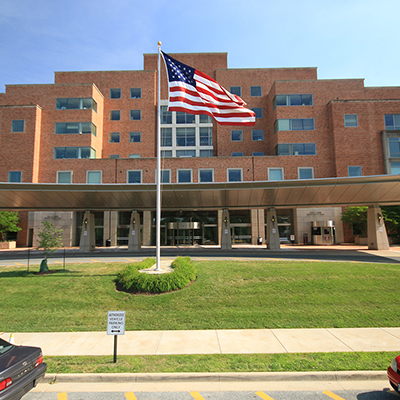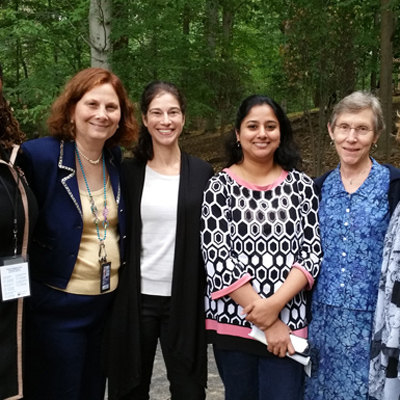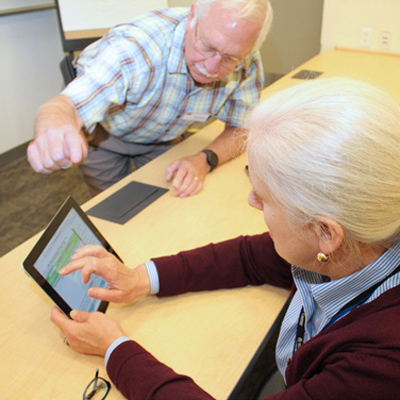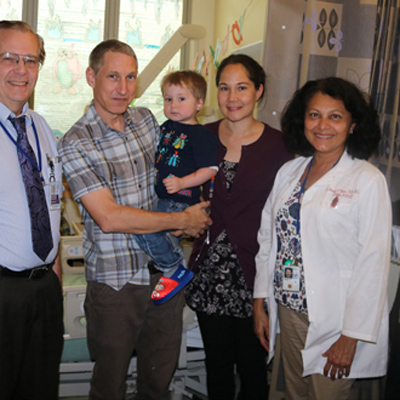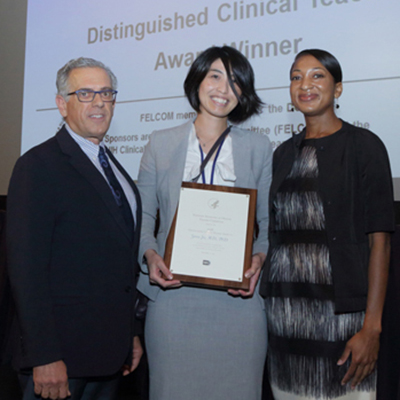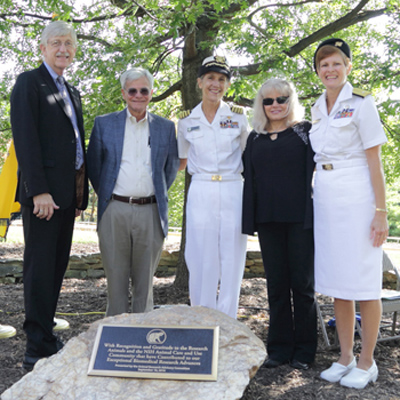Green Road Project to Research Healing Properties of Mother Nature
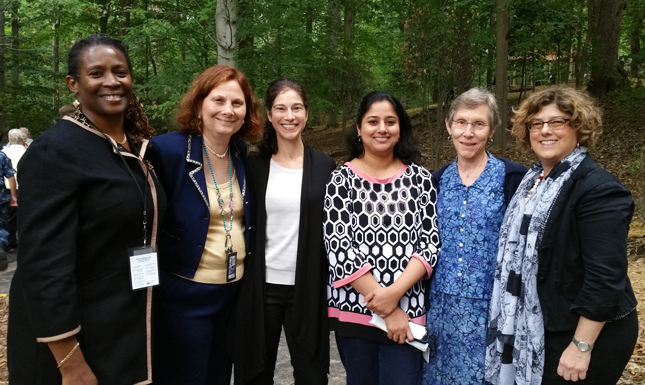
About a mile from the NIH Clinical Center, on the campus of Naval Support Activity Bethesda, a new research initiative was launched Sept. 26 to scientifically measure the healing effects of exposure to nature. Among those to celebrate the Institute for Integrative Health's opening of the Green Road project [disclaimer] was Dr. Ann Berger, chief of the Pain and Palliative Care Service at the NIH Clinical Center.
Berger, and many others, have worked and supported the creation of the Green Road ![]() (1.39 MB), which is a natural healing environment for injured service members receiving medical care at Walter Reed National Military Medical Center. The Green Road is also open to service members' families. The two-acre garden includes a streamside wheelchair and walking path and commemorative and communal pavilions. The Institute for Integrative Health, a non-profit organization that aims to create a wellness and medical model for society, led the project.
(1.39 MB), which is a natural healing environment for injured service members receiving medical care at Walter Reed National Military Medical Center. The Green Road is also open to service members' families. The two-acre garden includes a streamside wheelchair and walking path and commemorative and communal pavilions. The Institute for Integrative Health, a non-profit organization that aims to create a wellness and medical model for society, led the project.
As with any research trial, one of the most important components to its creation was determining the metrics to use to evaluate results. Berger was instrumental in developing the questions participating veterans will answer as part of the study to quantify and evaluate the psychological, social and spiritual aspect of spending time in nature.
Beginning in 2017, the study will request veterans' responses to the questionnaire both before and after they visit the Green Road. According to the Institute for Integrative Health, studies will also look at biomarkers of stress, use natural language processing to analyze participants' journals and stories and examine changes in gene expression. The study will compare how veterans respond to traveling by foot or wheelchair on two different routes across the naval base. One is a high-traffic urban route along Rockville Pike and the other is on the Green Road.
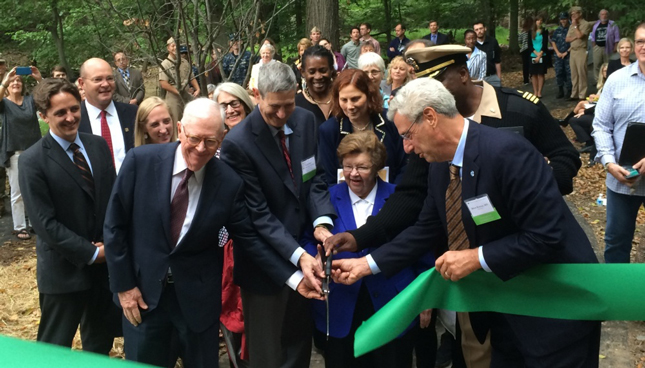
Subjective evidence suggest that immersion into nature can be healing, but there is very little scientific proof or research into this effect. The Institute for Integrative Health along with scientists from several other institutions will conduct the initial research over a two-year period of time.
"The Green Road is a place to heal the body, strengthen the mind and reinvigorate the spirit," said Sen. Barbara A. Mikulski at the dedication ceremony. "By connecting with nature, injured service members can reconnect to themselves, their families and the country they fought for."
Specifically, the project will research how spending time in nature contributes to the healing of service members with Post Traumatic Stress Disorder, traumatic brain injury and other traumatic injuries.
The physical aspects of healing can be quantified through measurements of blood pressure, heart rate and temperature as well as sweat samples. It is much harder to measure intangibles like psychological, social and spiritual healing, said Berger.
"Our work has been to develop a tool that measures this type of healing," she said.
Prior to the launch of the Green Road, Berger and researchers from other institutions interviewed hundreds of patients who experienced life-transforming events. From those interviews, they developed a list of about 100 questions to evaluate a patient's psychological, social and spiritual health.
"We then completed additional interviews with patients to gauge the understanding and interpretation of the questions," Berger said. "We had to ensure that these were the correct metrics to use for this critically important study taking place at the Green Road."
The result is a questionnaire of 48 statements which veterans will review and respond to with a rating from 1, for strongly disagree, to 5, for strongly agree.
Samples of the statements include: I feel isolated; I gain awareness from self-reflection; I have a greater appreciation for my life; My religious beliefs give me hope; Connection with my family has become my highest priority.
In addition to Berger, the project has attracted researchers from the University of Arizona at Tucson's Center for Integrative Medicine and its College of Medicine; the Benson-Henry Institute of the Massachusetts General Hospital and the Uniformed Services University of the Health Sciences' Consortium for Health and Military Performance.
The Green Road Project was one of six $1 million grants from the TKF Foundation's National Open Sacred Places Award.
The research that come from this project could have far reaching implications for planning and funding green spaces on other military bases, as well as in cities and other health institutions, said retired US Navy neurologist Dr. Frederick Foote, a scholar at the Institute for Integrative Health who conceived the Green Road project and managed its development.
"Working with the other health providers and also meeting with the architects and focus groups and veterans who contributed to the project has been an amazing experience," said Berger. "This research is so important because it's what patients care about. We can't cure all diseases, but what we can do is heal the person — make them feel whole — that is what psychological, social and spiritual healing is about."
